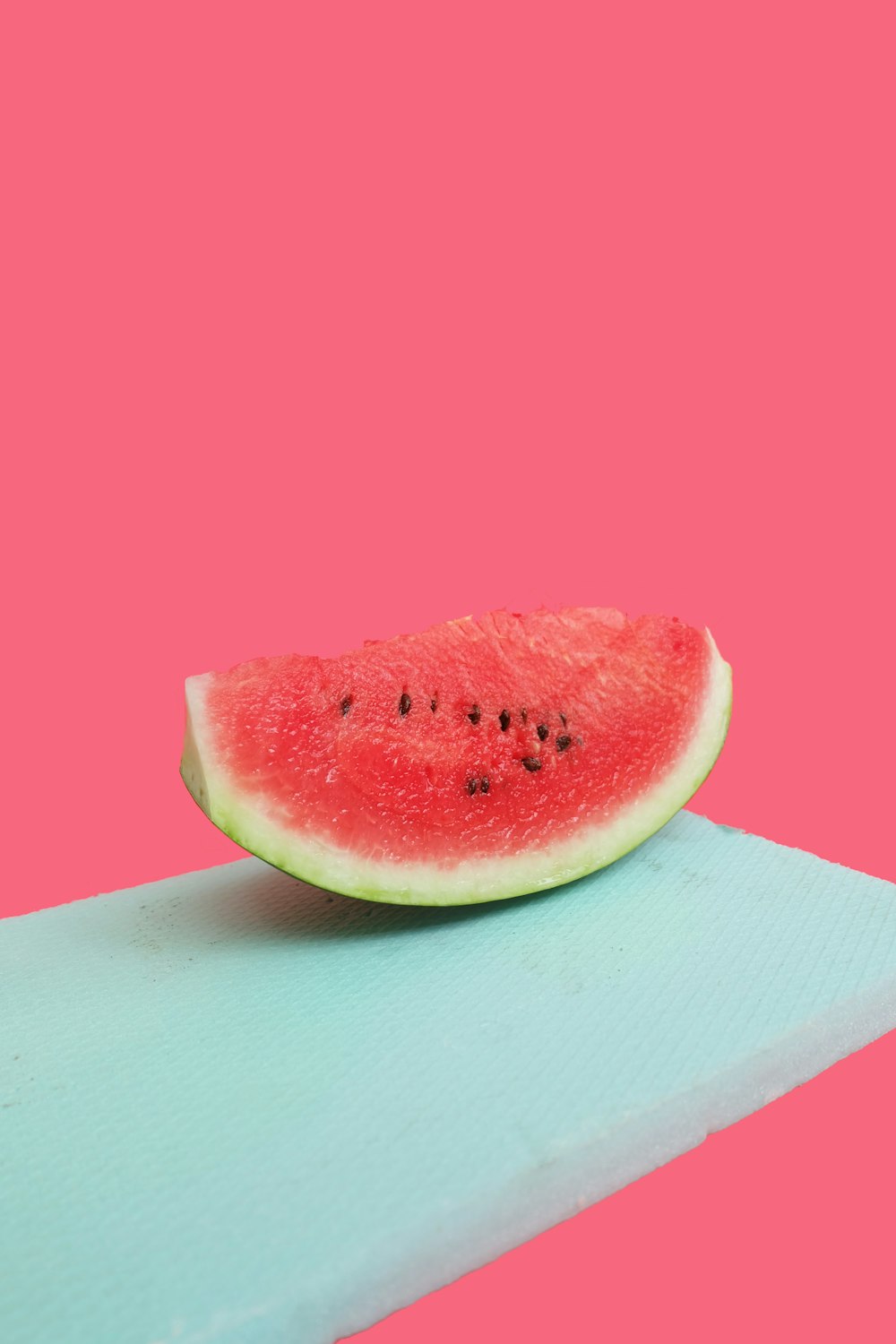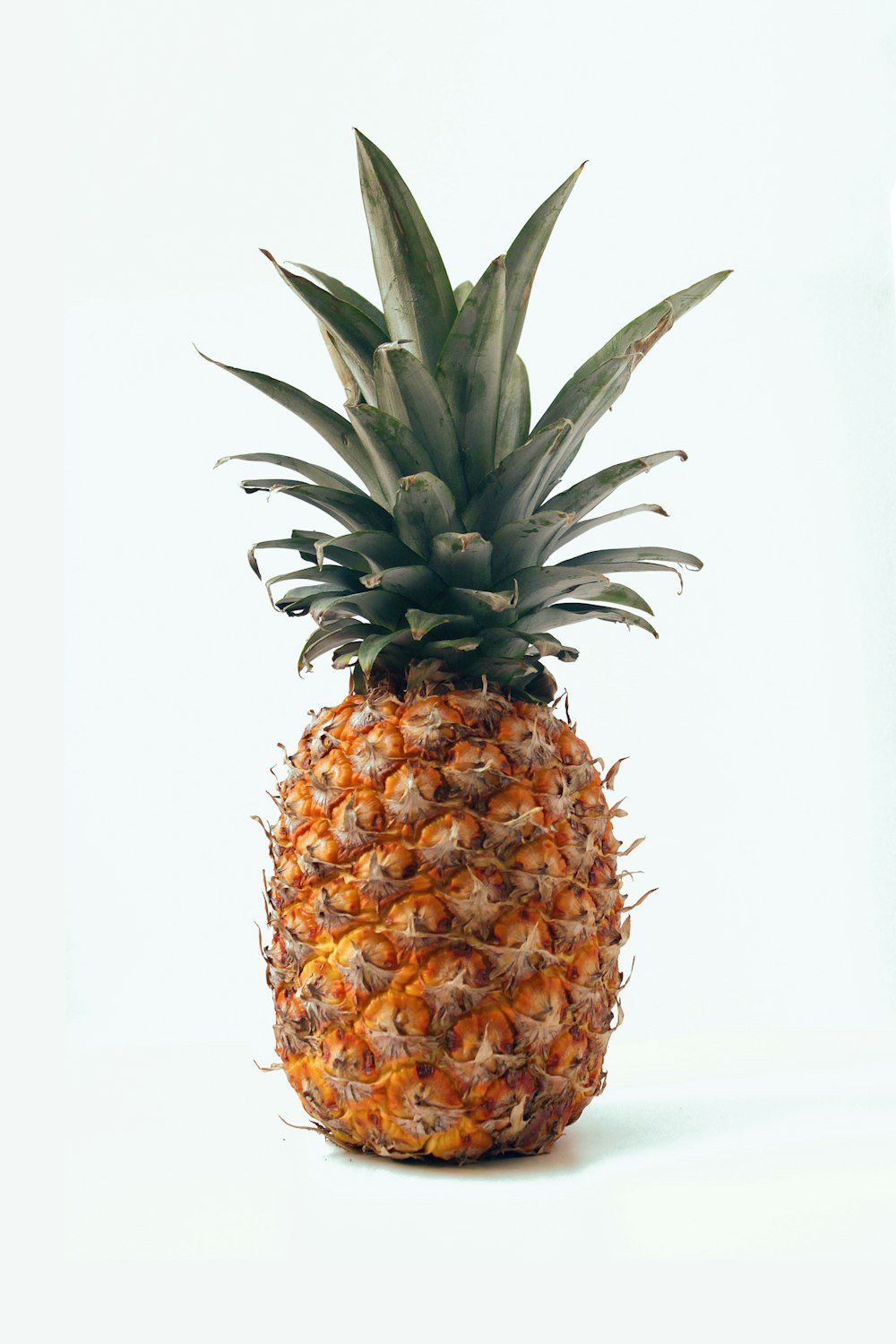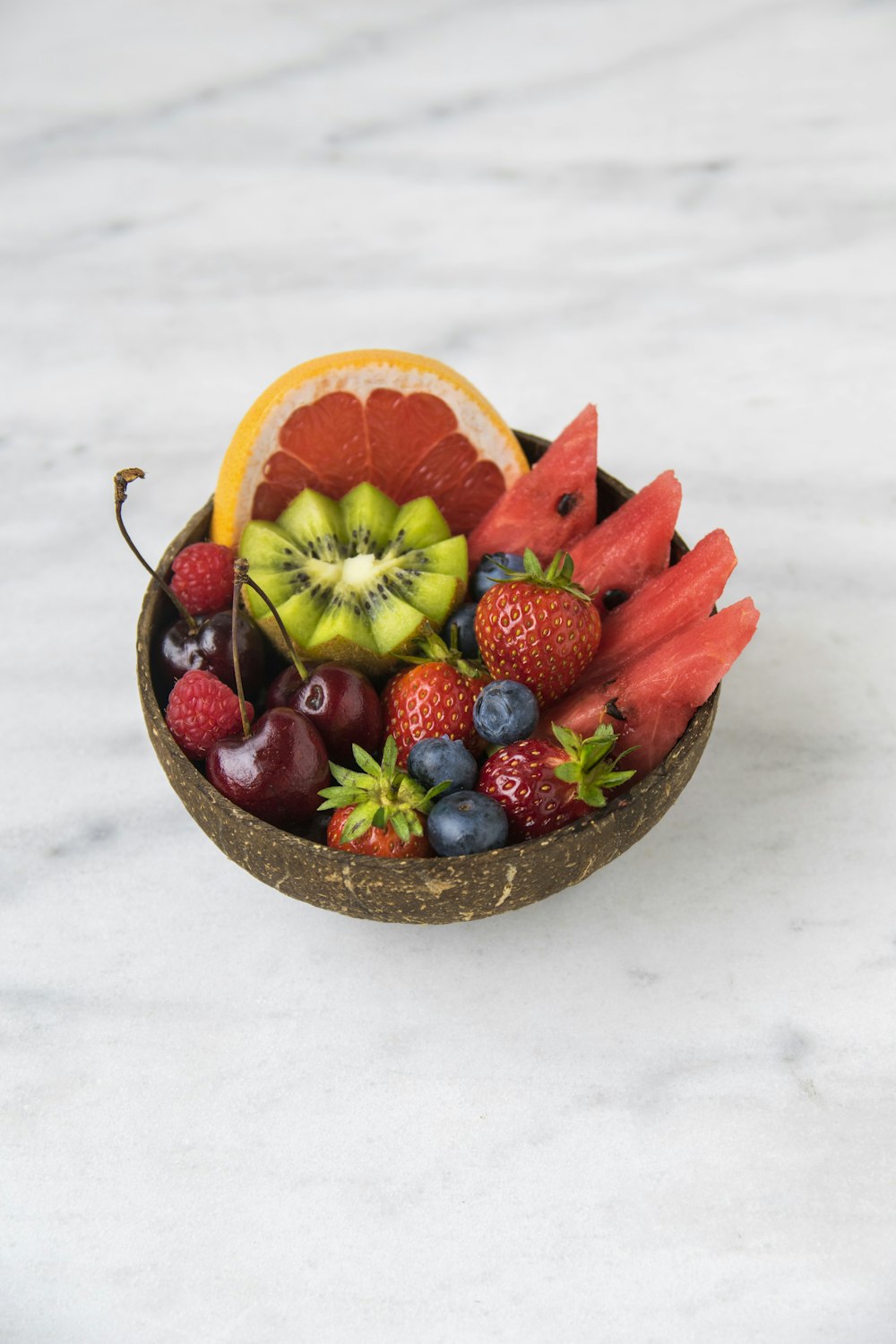Top 5 Water-rich Fruits That Helps You Stay Hydrated
Water-rich Fruits That Helps You Stay Hydrated
Being hydrated is one of the best things that can happen to you. At least drinking 6 to 8 glasses of water a day can protect 1*your tissues, spinal cords, joints, it helps remove waste from your body, 2* it regulates body temperature, helps your brain function and so forth.
The natural antioxidants in fruits and vegetables help keep your body working at its best, so consuming a diet that meets your daily recommended amount of fruits and vegetables is one of the best ways to give your body a strong defense against disease. Fruits and vegetables are protective of health as they’re helpful at reducing the risk of coronary heart disease, stroke, and some cancers. They’re also low in calories, which helps prevent obesity … a significant risk factor for type 2 diabetes, cancer, and cardiovascular disease. 8*
Eating fruit each day -- 1.5 cups for women and 2 cups for men, as recommended by the U.S. Dietary Guidelines, benefits your health.

3. Cantaloupe

 The fiber, potassium, vitamin C, and choline in cantaloupe all support heart health. Consuming foods rich in potassium can help decrease blood pressure. The American Heart Association (AHA) recommends that an average adult consume 4,700 mg of potassium a day to keep the cardiovascular system healthy. 9*
The fiber, potassium, vitamin C, and choline in cantaloupe all support heart health. Consuming foods rich in potassium can help decrease blood pressure. The American Heart Association (AHA) recommends that an average adult consume 4,700 mg of potassium a day to keep the cardiovascular system healthy. 9*
A diet that is rich in fruits and vegetables has been linked to a reduced risk of various conditions, including heart disease, diabetes, cancer, and obesity. Like other fruits and vegetables, grapes are a good source of fiber and water. Antioxidants and other nutrients in grapes may make them particularly healthful, although more research is needed to confirm some of their benefits. Here are some of the ways in which the nutrients in grapes may boost health. Grapes contain powerful antioxidants known as polyphenols. These are thought to have anti-inflammatory and antioxidant properties. One of these is resveratrol. It is found in the skins of red grapes.
5. Pineapples
Water content: 87%
Pineapple is one of the sweetest fruit you can taste.
This exceptionally juicy fruit made up of 87% water is beyond hydrating as it is packed with bromelain, an enzyme with potent anti-inflammatory, digestion, detoxing, and immunity-boosting benefits.
Reference
Eating fruit each day -- 1.5 cups for women and 2 cups for men, as recommended by the U.S. Dietary Guidelines, benefits your health.
Experts recommend us to drink water several times per day but what about water-rich fruits that can and will keep you hydrated.
✔️✔️Did You know? 😃
Your body weight is approximately 60 percent water
Here are 5 Water-rich Fruits That Helps You Stay Hydrated
1. Watermelon
 |
| Credit: Elena Koycheva @lenneek Sliced watermelon |
Water Content: 92%
The name, Watermelon says everything already.
Watermelon is a very nutritious fruit and contains beneficial plant compounds.
Each bite of watermelon contains about 92 percent water and 6 percent sugar. Despite being mostly water with a bit of sugar, watermelon is considered a very healthy snack. Its high water content helps keep you hydrated. 4*
It is believed that watermelon is not only quenching your thirst but also improve the blood circulation in the entire body. It is super fruit that almost contains 92 percent of water along with Vitamin A and C. Watermelon is not only fulfilling the water needs of your body but also rich in lycopene, potassium, and fiber. 3*
Laboratory studies have suggested that resveratrol may be able to slow or prevent the growth of tumors in lymph, liver, stomach, breast, colon, skin cancer, and leukemia. caused by low-density lipoprotein (LDL), or “bad” cholesterol. These studies have mostly used doses of these flavonoids far higher than those usually consumed by humans. The polyphenols in grapes, such as resveratrol, are thought to have antioxidant, lipid-lowering, and anti-inflammatory actions that may help reduce the risk of cardiovascular disease (CVD). They may achieve this by preventing platelet build-up and reducing blood pressure and the risk of irregular heart rhythms. Grapes contain fiber and potassium, both of which support heart health. The American Heart Association (AHA) rec ommends increasing potassium intake while decreasing sodium consumption to improve blood pressure and cardiovascular health. A study of data for 12,267 adults in the United States has shown that the more sodium people consume in relation to their potassium intake, the higher the risk of all-cause mortality.
ommends increasing potassium intake while decreasing sodium consumption to improve blood pressure and cardiovascular health. A study of data for 12,267 adults in the United States has shown that the more sodium people consume in relation to their potassium intake, the higher the risk of all-cause mortality.
 ommends increasing potassium intake while decreasing sodium consumption to improve blood pressure and cardiovascular health. A study of data for 12,267 adults in the United States has shown that the more sodium people consume in relation to their potassium intake, the higher the risk of all-cause mortality.
ommends increasing potassium intake while decreasing sodium consumption to improve blood pressure and cardiovascular health. A study of data for 12,267 adults in the United States has shown that the more sodium people consume in relation to their potassium intake, the higher the risk of all-cause mortality.
Foods with low-calorie densities have been shown to help with weight loss by promoting fullness and reducing appetite (3 ,4)
Furthermore, watermelon is rich in powerful antioxidants, including lycopene.
This compound has been studied for its ability to reduce oxidative damage to cells, which has been linked to diseases such as heart disease and diabetes (5 ).
 |
| Credit: Taylor Kiser @foodfaithfit Vegetable salad on a white ceramic bowl |
You can add watermelon to your diet by consuming it as a refreshing snack or side dish. It’s also commonly used to make salads.
2. Peaches
Wate Content: 89%

Peaches are a very nutrient-dense and hydrating fruit. Close to 90% of their weight is water. 7*
Consumption of fruits like peaches that are rich in vitamin A, is known to offer protection from lung and oral cancers. They contain many vital minerals such as potassium, fluoride, and iron. Potassium is an important component of cell and body fluids that help regulate heart rate and blood pressure.
 |
| Credit: Christiann Koepke @christiannkoepke Woman picking peaches on tree during daytime |
Peaches are low in calories (100 g just provide 39 calories) and contain no saturated fats. Nonetheless, they are packed with numerous health-promoting compounds, minerals, and vitamins. Fresh peaches are a moderate source of antioxidants and vitamin C which is required for the building of connective tissue inside the human body. Consumption of foods that are rich in vitamin C helps a person develop resistance against infections and helps to eliminate harmful free radicals that cause certain cancers.
Fresh fruits are a moderate source of vitamin-A and beta-Carotene. Beta-Carotene is a pro-vitamin, which converts into vitamin A inside the body. Vitamin A is essential for the prevention of night vision issues and for maintaining healthy mucus membranes and healthy skin. Consumption of fruits like peaches that are rich in vitamin A, are known to offer protection from lung and oral cancers. They contain many vital minerals such as potassium, fluoride, and iron. 8*
Fresh fruits are a moderate source of vitamin-A and beta-Carotene. Beta-Carotene is a pro-vitamin, which converts into vitamin A inside the body. Vitamin A is essential for the prevention of night vision issues and for maintaining healthy mucus membranes and healthy skin. Consumption of fruits like peaches that are rich in vitamin A, are known to offer protection from lung and oral cancers. They contain many vital minerals such as potassium, fluoride, and iron. 8*
Water content: 90%
Cantaloupe is a melon that's extremely nutritious and may boost your health in several ways. One cup (177 grams) of cantaloupe is composed of about 90% water and delivers more than a half-cup (118 ml) of water per serving (11).7*
4. Grapes
Water content: 82% |
| Credit: Jose Alfonso sierra @utielanias View of grapes on tree |
5. Pineapples
Water content: 87%
 |
| Credit: Miguel Andrade @miguel_pembo |
Pineapple is one of the sweetest fruit you can taste.
This exceptionally juicy fruit made up of 87% water is beyond hydrating as it is packed with bromelain, an enzyme with potent anti-inflammatory, digestion, detoxing, and immunity-boosting benefits.
Nutrition facts
Here are the nutrition facts for raw pineapple, according to the U.S. Department of Agriculture:
Serving size: 1 cup chunks (165 g)
Amount per serving:
Calories 74
Total Fat 0 g
Cholesterol 0 mg
Sodium 2 mg
Potassium 206 mg
Total Carbohydrate 19.5 g
Sugars 13.7 g
Protein 1g
Reference
APA Citations
1.Laskey, B. J., Zuppello, S., Ellin, A., Millard, E., & McGivney, J. (n.d.). Functions of Water: Health Benefits: Everyday Health. Retrieved from https://www.everydayhealth.com/water-health/water-body-health.aspx
2.Silver, N. (2019, March 19). Why Is Water Important? 16 Reasons to Drink Up. Retrieved from https://www.healthline.com/health/food-nutrition/why-is-water-important
3. Siddel, P. (2014, August 5). Water-rich foods that keep you hydrated in summer. Retrieved from https://www.slideshare.net/peter121siddel/water-rich-foods-that-keeps-you-hydrated-in-summer
4. How Much Water Is In a Watermelon? (n.d.). Retrieved from https://wonderopolis.org/wonder/how-much-water-is-in-a-watermelon
5. Citation Machine: Format & Generate Citations – APA, MLA, & Chicago. (n.d.). Retrieved from https://www.citationmachine.net/
6. How to create a garden that keeps on ... - Food For Mzansi. (n.d.). Retrieved from https://www.foodformzansi.co.za/how-to-create-a-garden-that-keeps-on-giving/
7. Elliott, B. (2017, August 9). 19 Water-Rich Foods That Help You Stay Hydrated. Retrieved from https://www.healthline.com/nutrition/19-hydrating-foods
8. Health Benefits of Peaches: A Delicious Summer Fruit. (n.d.). Retrieved from https://njaes.rutgers.edu/sshw/message/message.php?p=Health&m=301
9. Megan Ware, R. D. N. (2019, November 8). Cantaloupe: Health benefits and nutrition. Retrieved from https://www.medicalnewstoday.com/articles/279176
9. Megan Ware, R. D. N. (2019, November 8). Cantaloupe: Health benefits and nutrition. Retrieved from https://www.medicalnewstoday.com/articles/279176
1 10. Megan Ware, R. D. N. (2017, November 15). Grapes: Health benefits, tips, and risks. Retrieved from https://www.medicalnewstoday.com/articles/271156
11. Foods with The Highest Water Content. (2018, April 30). Retrieved from https://greenblender.com/smoothies/2683/foods-with-the-highest-water-content

Comments
Post a Comment